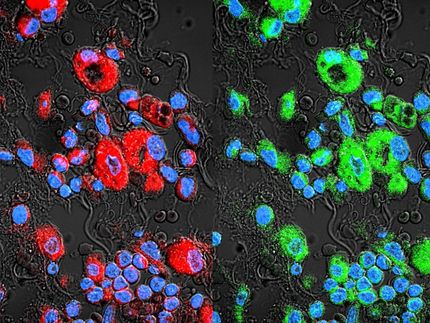Million investment for lung cancer therapy
Belgian biotech start-up will use funding to start first-in-human clinical study for lead drug candidate in lung cancer
DeuterOncology, a clinical-stage drug development company, announces the closing of its €5.65 million ($6.1M) Series A financing, with participation from historical investor Newton Biocapital and new investors Noshaq and Investsud Tech.
This funding will enable the company to start the phase I clinical study for its lead product DO-2, an improved MET kinase inhibitor currently being developed as a potential best-in-class targeted therapy for lung cancer.
MET inhibitors have recently been approved for patients with Non-Small Cell Lung Cancer (NSCLC) harbouring the MET exon 14 skipping mutant. Unfortunately, they all suffer from the same issue: poor tolerability. This leads to frequent dose reductions and interruptions that result in suboptimal target inhibition and therapy resistance. All agents in this class report similar issues and as a result require maximum tolerated clinical doses to achieve efficacious exposures. However, these high daily doses cause the formation of increased levels of inactive metabolite(s) that continue to impart toxic effects.
DO-2 overcomes this at source, having a metabolically liable hydrogen judiciously replaced with a stronger bond strength deuterium atom. This significantly reduces the impact of this metabolic liability during treatment. The strength of DO-2 has been proven in preclinical studies, where low doses resulted in an extended efficacious plasma exposure profile and potent in vivo efficacy. In addition, these studies have shown the formation of an active metabolite that maintains activity on the MET kinase as well as binding to an alternative kinase that is a constituent of the RAS pathway. This new target kinase is reported to play a role in the RAS signaling pathway that is involved in resistance to MET inhibitors, it therefore represents a promising target for overcoming or delaying the emergence of resistance.
The ability of DO-2 to sustainably inhibit MET opens potentially broader oncology applications as monotherapy and in combination therapy with other SOC (Standard of Care) and targeted agents.
Timothy Perera, founder and CEO of DeuterOncology, said: “We are grateful for the continued guidance and financial support of Newton Biocapital as well as the new investments from Noshaq and Investsud Tech. This new funding will enable us to translate the strong preclinical data package into the clinic and validate DO-2 as a best-in-class MET kinase inhibitor, as well as to identify a recommended phase II dose. The clinical study (EudraCT 2022-001681-35) is now open for recruitment of biomarker selected patients at two trial sites in Belgium (with Prof Jean-Pascal Machiels and Dr Rachel Galot, Cliniques universitaires Saint-Luc, UCLouvain Brussels and Prof Hans Prenen, UZA Antwerp) and one site in the Netherlands (with Dr Debbie Robbrecht, Erasmus MC Rotterdam). We expect to obtain phase I results by Q2, 2024.”
Els Hubloux, partner at Newton Biocapital Partners, said: “We are delighted to continue to support DeuterOncology in its ambition to create a potential best-in-class targeted therapy for lung cancer patients. We are very impressed with the company’s progress so far and look forward to continuing the journey with DeuterOncology as it evaluates its lead programme in a first-in human trial.”
Eric Brandt, investment manager at Noshaq, said: “DeuterOncology is developing a cutting edge approach to taking oncology drugs to the next level in terms of safety and efficacy, with the objective of bringing to market some disruptive treatments for different types of cancers. Current results are very promising and we are looking forward to confirming the potential of DO-2 with the first-in-human clinical trial. Noshaq is also pleased to welcome the company into its local ecosystem, which offers a strong scientific environment, especially in the oncology field.”
Pierre Detrixhe, partner at Investsud, said: “At Investsud Tech, we are very pleased to be part of this syndication led by Newton Biocapital, which enables DeuterOncology to test its best-in-class MET kinase inhibitor in the clinic. The process of replacement of hydrogen by deuterium seems to be a very smart approach to reducing the issues presented by the MET inhibitors already on the market. We hope that the clinical data package will be as strong as the preclinical data package.”

Symbolic image
Computer-generated image
Other news from the department business & finance
Most read news
More news from our other portals
Something is happening in the life science industry ...
This is what true pioneering spirit looks like: Plenty of innovative start-ups are bringing fresh ideas, lifeblood and entrepreneurial spirit to change tomorrow's world for the better. Immerse yourself in the world of these young companies and take the opportunity to get in touch with the founders.




















































